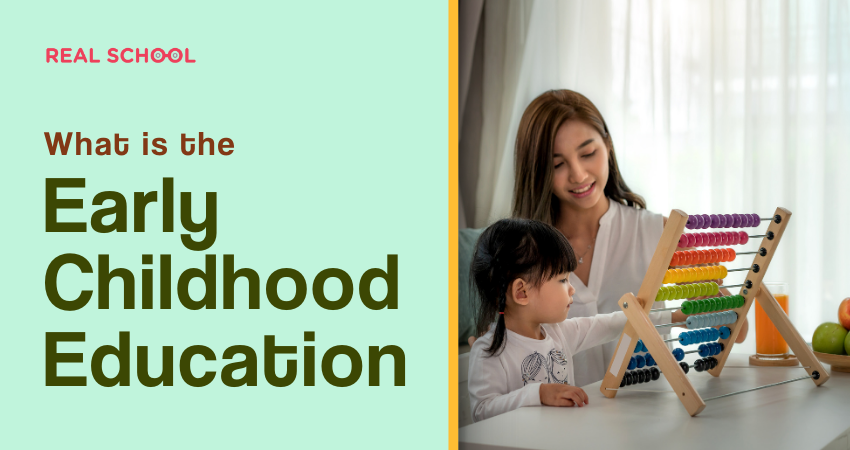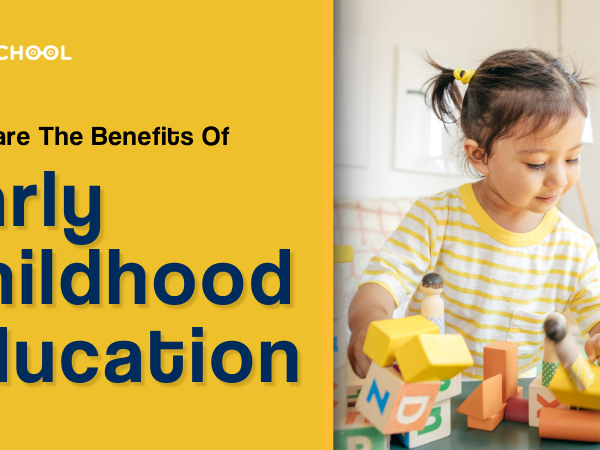Early childhood education establishes a child’s lifelong learning journey. It is a critical stage in a child’s development during which they gain critical skills and knowledge that will define their future. In this post, we’ll look at why early childhood education is crucial and how it affects cognitive, social, and emotional development.
The Formative Years
The first eight years of a child’s life, from birth to eight years old, are crucial for brain development. Their minds are particularly open to learning and absorbing new knowledge throughout this time.
Cognitive Development throughout Early Childhood Education
Building Blocks of Learning
Early childhood education provides the building blocks for future academic success. It introduces children to basic literacy and numeracy skills, setting them on a path to becoming proficient readers and mathematicians.
Curiosity and Critical Thinking
Engaging educational experiences during these years nurture curiosity and critical thinking skills. Children learn to ask questions, explore their surroundings, and develop problem-solving abilities.
Social Development throughout Early Childhood Education
Communication Skills
In a structured early education environment, children have the opportunity to interact with peers and adults. This interaction hones their communication skills, enabling them to express themselves effectively.
Empathy and Cooperation
Early childhood education fosters empathy and cooperation. Through group activities and teamwork, children learn to work together, share, and understand the feelings of others.
Emotional Development throughout Early Childhood Education
Self-Confidence
A supportive and nurturing early education environment boosts a child’s self-confidence. They learn to take on challenges and believe in their abilities.
Emotional Regulation
Children are taught how to manage their emotions, a vital skill that will serve them throughout their lives. They learn to identify and cope with feelings in healthy ways.
The Impact on Future Success
Higher Academic Achievement
Studies have shown that children who receive quality early childhood education are more likely to excel academically in later years.
Reduced High School Dropout Rates
Investing in early education reduces the likelihood of high school dropouts, leading to a more educated workforce.
Improved Career Opportunities
Individuals with a strong educational foundation are more likely to secure better job opportunities and earn higher incomes.
Also Read: What is a Montessori Preschool Program?
Conclusion
Early childhood education is more than just getting children ready for school; it is also about getting them ready for life. It provides students with the necessary tools to flourish academically, socially, and emotionally. We are investing in a better future for our children and society as a whole by investing in early childhood education. Know more – The Real School
FAQs
1. What age group does early childhood education cater to?
Ans: Early childhood education typically caters to children from birth to eight years old.
2. Is early childhood education only about academics?
Ans: No, early childhood education focuses on holistic development, encompassing cognitive, social, and emotional growth.
3. Are there long-term benefits to early childhood education?
Ans: Yes, research suggests that children who receive quality early education experience long-term benefits, including higher academic achievement and better career prospects.
4. How can parents support early childhood education at home?
Ans: Parents can support early education by reading to their children, engaging in educational activities, and providing a loving and nurturing environment.
5. Is early childhood education accessible to all children?
Ans: Efforts are being made to make early childhood education more accessible, but there are still disparities in access, particularly in underserved communities.







